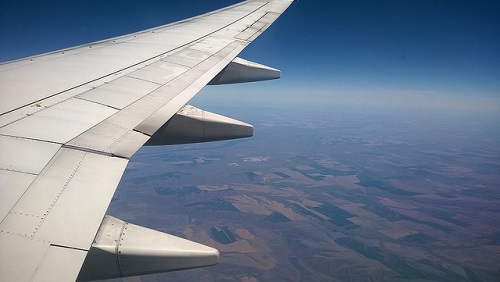
Jet lag is an unavoidable part of long haul travel. Most expats will be familiar with that feeling of tiredness and confusion after a long flight, the result of your body finding it difficult to adjust to a new time zone. Jet lag can disturb your sleep pattern and make you feel drowsy and lethargic. The more time zones you cross, the bigger the effect jet lag can have, especially when flying from west to east.
Disturbed sleep is just one symptom of jet lag. Because your body clock controls your sleeping and waking pattern, jet lag also affects appetite and digestion, bowel and urine habits, body temperature, and blood pressure. This means it can make people feel generally unwell and lead to stomach upsets, constipation, diarrhea, and nausea. Some find it hard to concentrate, are disorientated, and irritable. It doesn’t usually cause any long-term health problems, and in most cases the symptoms pass after a few days.

It’s not possible to prevent jet lag, although different people suffer to a different extent, but there are things you can do to reduce its effects. Before travelling, try and gradually adjust your sleeping habits to the destination time zone. On the flight, stay rehydrated and control the times that you nap on the plane. When you arrive at your destination establish a new routine for eating and sleeping according to your new time zone. Avoid napping as soon as you arrive, as staying active until the correct time to sleep will help your body adjust quicker. Spending time outdoors in natural light will help your body adjust to a new routine, a good idea is to take a one-hour walk as soon as you get up in the morning.
While this advice is all well and good, when it comes to the annual summer trip back “home” it’s not always easy to do. If you’re travelling with kids, you’ve got their routines and jet lag to think about too. Add to that a hectic summer schedule of trips to see friends, family, and doing fun stuff. You will therefore want to get back on track as soon as possible. This is where medicines or remedies for jet lag can really help. Melatonin is a hormone the body makes that regulates the cycle of sleeping and waking. Taking melatonin may help "reset" your sleep and wake cycle. Some studies show that using it reduces how much jet lag people report on both eastward and westward flights.

For this year’s summer trip I decided to take melatonin, to try and reduce the symptoms of jet lag. I took one tablet each evening, just before bedtime, for the first three days after arriving in the UK. On the first night I managed to sleep from 9pm through to 5am – when the kids woke me. The following night was 10pm-5.30am, and then 10pm-6am. So I was managing around 8 hours of good quality sleep, and not once did I experience those awful 3am wake-ups.
The great thing about the melatonin was that it didn’t knock me out, like sleeping tablets probably would. When the kids woke in the night, needing water or to go to the bathroom, I got up fine with them, but was still able to go straight back to sleep. I didn’t feel groggy or fuzzy the next morning, and I had none of the light-headedness during the daytime that normally accompanies jet lag. Melatonin doesn’t work for everyone, but I am convinced it was those three little tablets that made such a difference to the start of my summer holiday.
beijingkids Shunyi Correspondent Sally Wilson moved to Beijing in 2010 from the UK with her husband and son. Her daughter was born here in 2011 and both her kids keep her happily busy. In her spare time, Sally loves to stroll through Beijing’s hutongs and parks. She is a (most of the time) keen runner and loves reading: books, magazines, news, and celeb websites – anything really. Sally is also a bit of a foodie and loves trying out new restaurants.
Photos: David Becker, TheMarcusChance, Michael Reuter (Flickr)



